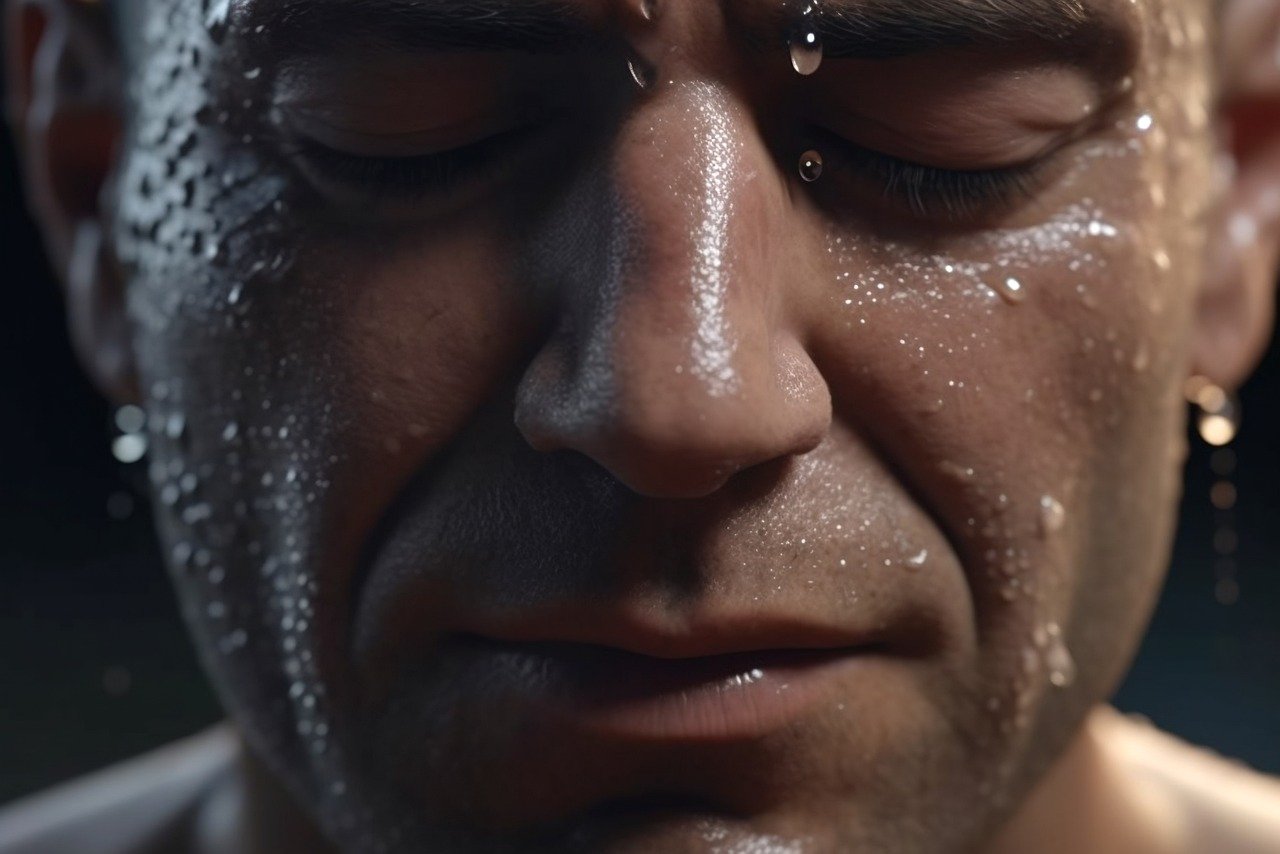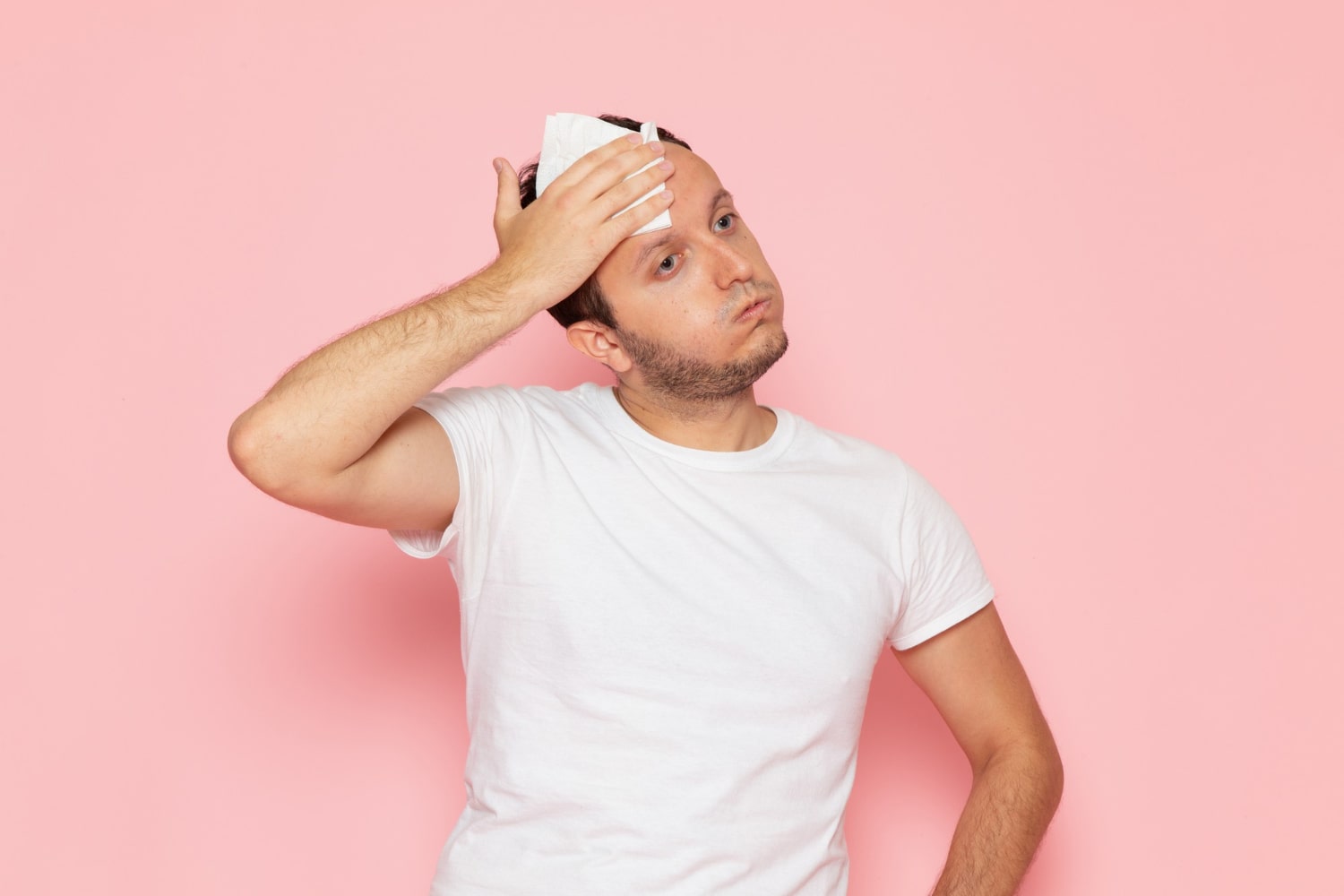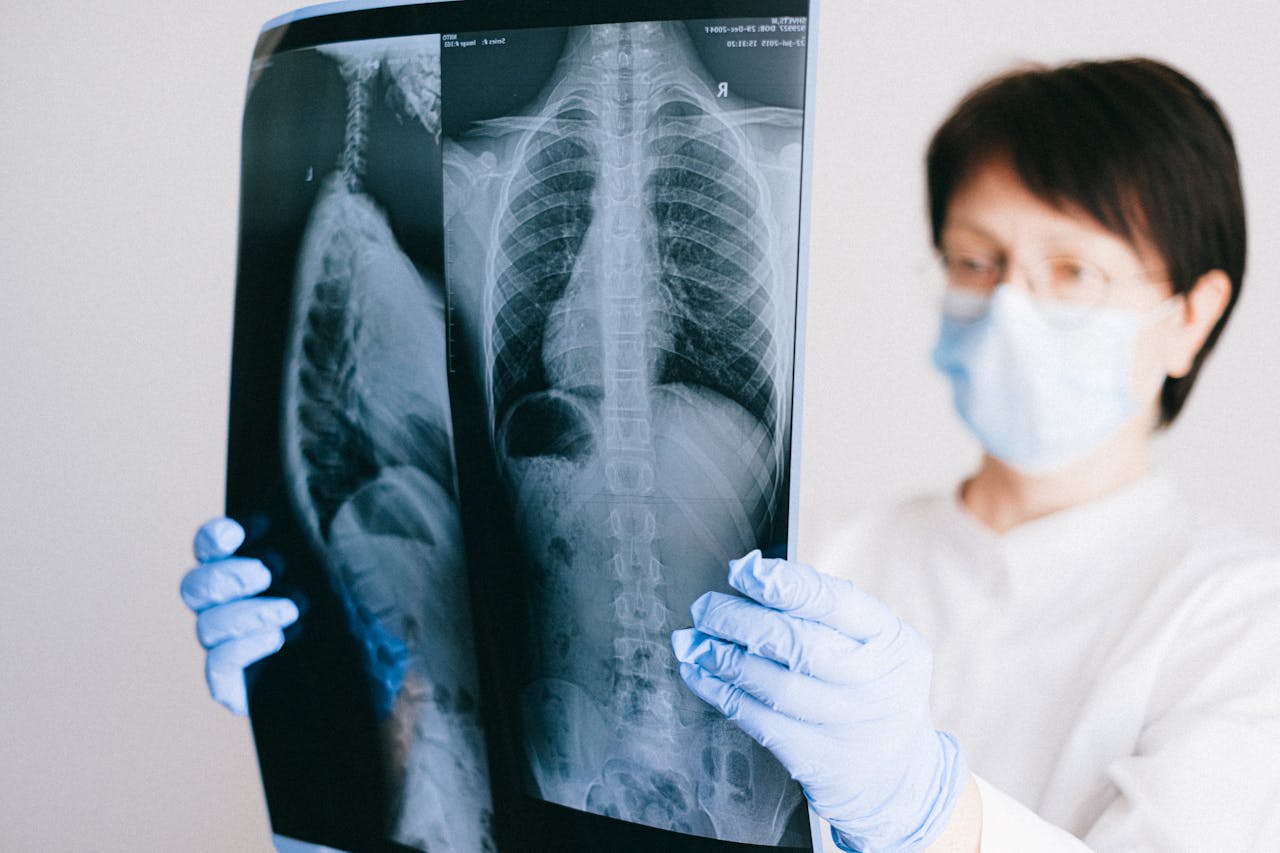What is Excessive Sweating During Sleep (Night Sweats)?

Night sweats refer to excessive sweating during sleep, often caused by menopause, hormonal changes, or certain illnesses. This condition can significantly discomfort individuals, as they may wake up soaked in sweat, with wet clothing and bedding, and struggle to fall back asleep.
Normal sweating is a healthy body response to regulate body temperature. However, night sweats are often accompanied by sudden heat waves, rapid heartbeat, and skin redness.
What Causes Night Sweats Without Fever?
Night sweats without fever are often due to hormonal changes, such as those seen in menopause and hyperthyroidism. Other contributing factors include stress, anxiety, and low blood sugar. Environmental factors like using thick blankets, wearing heavy or tight clothing to bed, and sleeping in overly warm conditions can also lead to excessive sweating during sleep.
Neck and Back Sweating While Sleeping
The neck and back are among the areas that sweat the most during sleep. This can result from stress, hot flashes, or hormonal changes. It is especially common in menopausal women. Factors like improper pillow choice and sleeping in a warm environment can also contribute.
Causes of Excessive Sweating During Sleep
 Excessive sweating during sleep can occur for various reasons, affecting both men and women. Many individuals find this condition disruptive, waking up to soaked clothing and bedding. The causes of night sweats include:
Excessive sweating during sleep can occur for various reasons, affecting both men and women. Many individuals find this condition disruptive, waking up to soaked clothing and bedding. The causes of night sweats include:
- Menopause
- Premenstrual Syndrome (PMS)
- Pregnancy
- Stress and anxiety
- Low blood sugar (hypoglycemia)
- Gastroesophageal reflux disease (GERD)
- Sleep apnea
- Infections like flu
- Certain cancers
- Neurological disorders
- Thyroid issues
Additionally, medications such as antidepressants, pain relievers, and steroids can cause excessive sweating during sleep.
Symptoms of Night Sweats
Individuals experiencing night sweats may wake up drenched in sweat at any point during their sleep. Symptoms include sudden heat waves, skin redness, and coughing. Common symptoms are:
- Unexplained weight loss
- Fever
- Cough
- Diarrhea
- Localized pain
- Rapid heartbeat
Not all individuals will experience every symptom, and the presence of one or several symptoms is possible.
How is Excessive Sweating During Sleep Treated?
Excessive sweating during sleep can be caused by physical, environmental, or medical factors. If caused by environmental factors, such as sleeping in a hot environment or using heavy bedding, addressing these factors may reduce sweating. When caused by medical conditions, treatment depends on the underlying cause. For instance, hormone therapy can be used for menopause-related night sweats. Prof. Dr. Semih Halezeroğlu treats his patients with the most appropriate methods. The medications used in the treatment of night sweating are as follows:
| Medication | Description |
|---|---|
| Anticonvulsants | Used to control and prevent seizures. |
| Antidepressants | Prescribed for treating hot flashes. |
| Clonidine | Used for high blood pressure, ADHD, and other conditions. |
| Megestrol | Prescribed for breast and uterine cancer or to increase appetite. |
| Oxybutynin | Used for urinary disorders. |
How to Prevent Night Sweats? Expert Tips for Quality Sleep
Follow these tips for a good night’s sleep and to prevent night sweats:
- Keep cold water beside you at night.
- Wear lightweight, breathable clothes to bed.
- Exercise daily.
- Use lightweight, layered bedding.
- Try breathing exercises and meditation before bed.
- Use cooling gels or pads on pillows or bedding.
- Use a fan or keep windows open.
- Avoid spicy foods, caffeine, and smoking.
What is the Treatment for ETS?
 Many people complain about excessive sweating in their hands. Excessive sweating of the hands can make life difficult for a person. ETS treatment is the abbreviation of the application known as hand sweating treatment or hand sweating surgery. ETS treatment is mostly used in the treatment of excessive sweating in the palms or face.
Many people complain about excessive sweating in their hands. Excessive sweating of the hands can make life difficult for a person. ETS treatment is the abbreviation of the application known as hand sweating treatment or hand sweating surgery. ETS treatment is mostly used in the treatment of excessive sweating in the palms or face.
With ETS treatment, the sympathetic nerve chain that controls sweating is found and the part belonging to the area where there is excessive sweating is cut or a clip is placed in that area.
Frequently Asked Questions
Excessive sweating during sleep can occur due to environmental and physical conditions, especially heat, and can also be seen as a result of various diseases. Treatment is usually not required for excessive sweating during sleep, and doctors’ recommendations are followed to reduce sweating. If the underlying cause of night sweating is a disease, night sweating can also disappear when that disease is treated. Other questions about excessive sweating during sleep are as follows:
When is Night Sweating Dangerous?
Excessive sweating can cause significant fluid loss. Ensure adequate water intake during the day. Consult a doctor if symptoms like unexplained weight loss, persistent pain, or chronic coughing accompany night sweats.
What Does Excessive Sweating Indicate?
Excessive sweating can indicate various medical conditions such as obesity, diabetes, thyroid issues, or respiratory and cardiac conditions.



